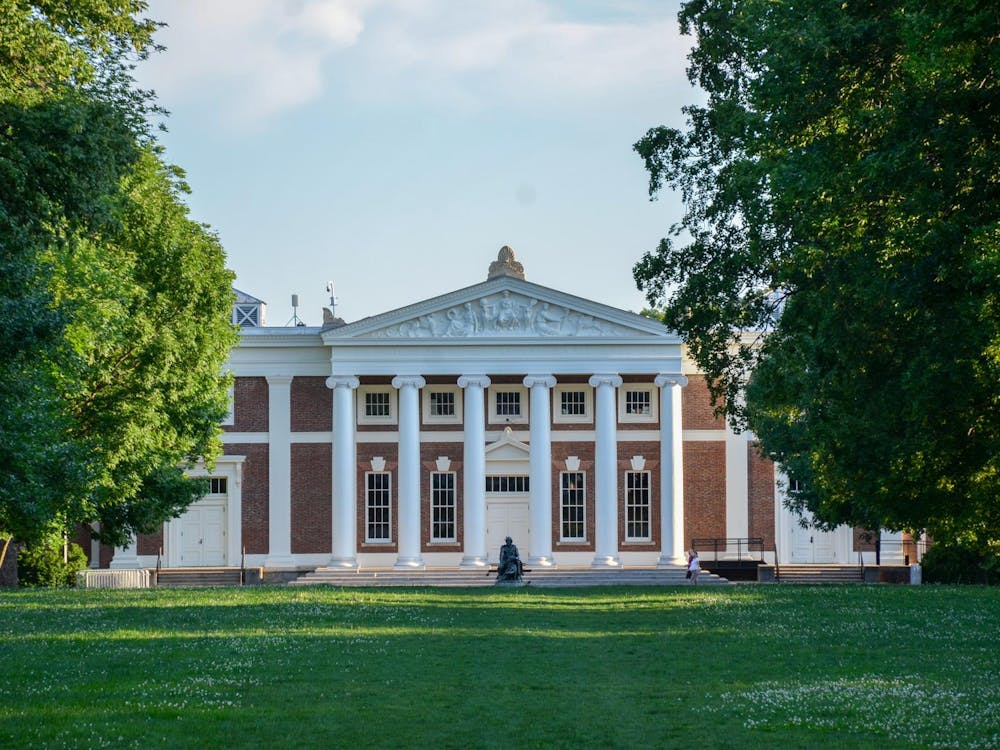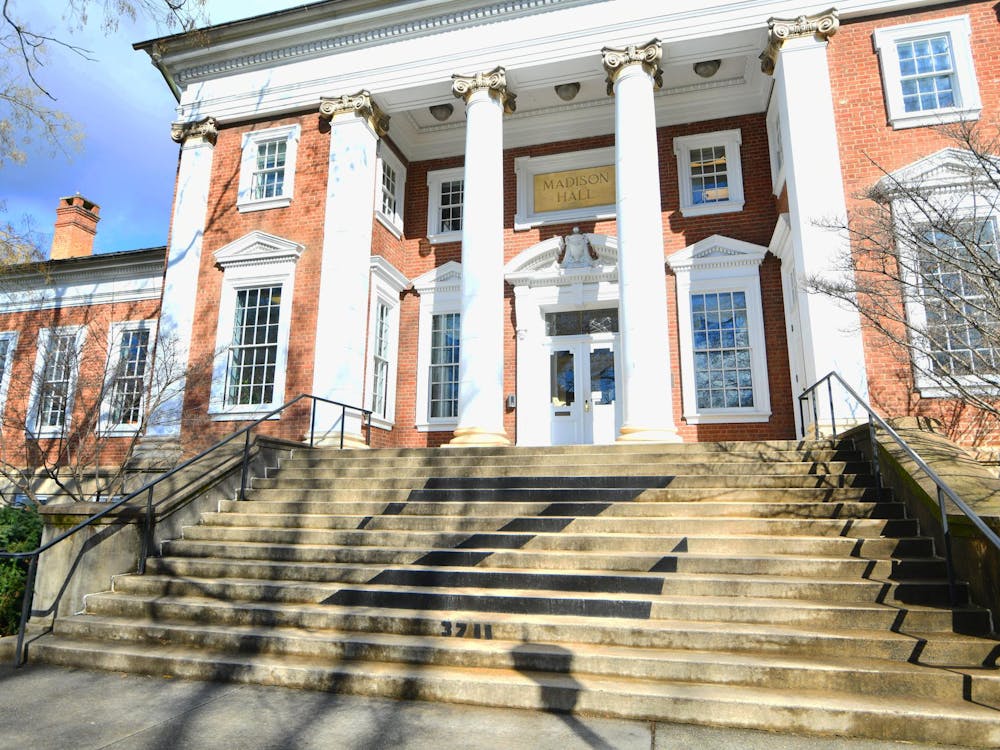It’s a trend so well-observed that we hesitate to bring it up once more. In the last few decades, state funding for higher education has declined across the U.S. In 1980, state funding accounted for 46 percent of public institutions’ operating budgets, according to the Association of Public and Land Grant Universities. Average support fell to 27 percent by 2005.
In the scramble to disinvest in higher education, Virginia’s public universities have been among the country’s biggest losers. The commonwealth reduced higher-education spending by 53.6 percent between 1980 and 2011. The drop in state funding sparked some gloomy predictions. The American Council on Education in 2012 warned that if cuts continued at current rates, state funding for Virginia’s public institutions would hit zero by 2038.
Fortunately, public support for higher education has not continued to plummet. Virginia increased its higher-education spending by 3.3 percent for fiscal year 2014.
Yet the fact remains that only a sliver of the University’s budget comes from Richmond. State appropriations in fiscal year 2013 accounted for 5.8 percent of the University’s total operating budget.
The pattern of declining state support for higher education sets the stage for the most recent development in the story of AccessUVa: the University’s push to bolster the financial aid program with private donations.
The Board of Visitors scaled back AccessUVa in August by eliminating all-grant aid for low-income students. In mid-November, University President Teresa Sullivan pledged her 2 percent pay raise — a total of $10,000 — to AccessUVa. She encouraged donors to follow her example. She told the Daily Progress last week that she wants to cover more of AccessUVa’s costs through philanthropy, thereby decreasing the amount of money the program draws from the University’s endowment.
Sullivan is not the first University leader to give AccessUVa a high-profile gift. Football coach Mike London donated $50,000 to the program in 2011 after his team made it to the Chick-fil-A Bowl.
Sullivan’s donation, unlike London’s, bears a political stamp. Her pledge is a commendable gesture. But it also sends a message. Sullivan’s gift suggests that the University would be happy to restore all-grant aid — as long as the school doesn’t have to pay for it. Some students still hold out hope that the Board will reverse its decision about AccessUVa. Yet it seems more and more likely that any upsurge in support for financial aid will have to come from donors, not the University itself.
Former University President John Casteen also sought philanthropic support for AccessUVa. But he did so in a different moment. Now, AccessUVa is in a transitional state, at least in the public eye. Student protesters associated with United for Undergraduate Socioeconomic Diversity and other groups hope that the cuts to the program are temporary — that they can persuade the Board to restore all-grant aid. They imagine AccessUVa to be in a state of flux. And for administrators, AccessUVa is no longer untouchable.
The University’s drive to collect private gifts for the financial aid program steers responsibility for AccessUVa from the University to alumni. The financial aid program is less than 10 years old. University leaders are still attempting to devise ways to make it sustainable. Soliciting donations seems like the most plausible long-term plan for ensuring AccessUVa’s future, in the eyes of Sullivan and other University leaders.
The University receives marginal state support but produces fiercely loyal alumni. So it’s no wonder that philanthropy has emerged as an imagined cure-all for the University’s needs. And it’s no surprise that when it comes to AccessUVa, University leaders are looking to donors to make up the balance.
It’s easy to identify a program you support and then demand that someone else pay for it. In these pages, we’ve sometimes turned to the state much as the University is now turning to donors. Give the University more funding, we’ve argued, and our problems — low faculty compensation, shoddy digital infrastructure and so on — will be solved.
For University leaders, philanthropy, not the state, is a panacea.
Anyone who took Economics Prof. Ken Elzinga’s introductory microeconomics course will recognize the simile of dollars as votes. When you pay for a product or an idea, you are “voting” for it. The same logic applies to the University’s relationship with donors.
Donors’ priorities don’t always match what’s best for the University. But wealthy alumni (or wealthy people married to alumni) hold the checkbooks. Too often donors place money toward pet projects that seem frivolous. The construction of the Contemplative Sciences Center, created by a $12 million gift from Sonia and Paul Tudor Jones, is one example.
But University leaders strapped for cash have to dance in step with donors and hope for the best. If dollars are votes, a philanthropy-based financial model is far from democratic.
Our qualms with the University’s increasing reliance on philanthropy should be clear. And the push to collect gifts for AccessUVa is the latest reminder of how we use projected donations to fill gaps, even in essential programs.
The fundraising campaign for AccessUVa will direct donations to a worthy end. In that respect, the campaign is a positive thing. But insofar as University leaders push AccessUVa under the umbrella of “things that alumni pay for,” they shift the program away from the category of “things that the University must pay for.” Financial aid is too important to be left to donors. The responsibility for student access lies with the institution — not with the whims of the wealthy.






